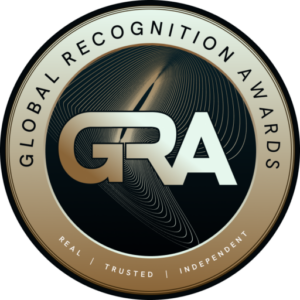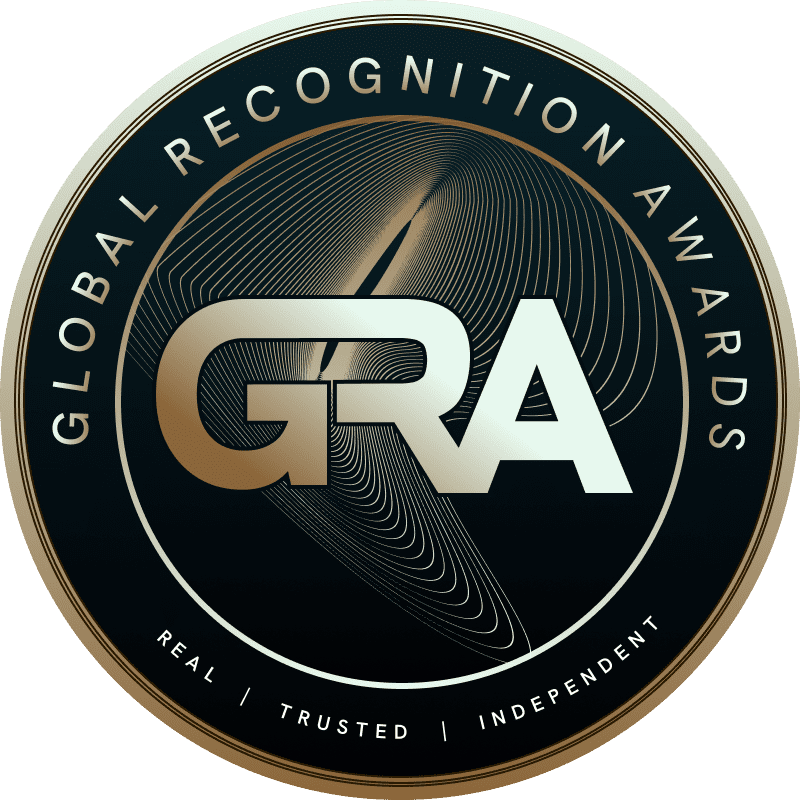Table of Contents
Trust Defines Success in AI
Artificial intelligence has entered the mainstream faster than most technologies in history. Companies deploy AI for everything from medical diagnosis to financial forecasting. But rapid adoption has created a critical challenge: how do organizations and individuals know which AI systems deserve their trust?
The answer increasingly comes through technology recognition. AI Awards serve as verification mechanisms that separate genuine progress from marketing hype. In an industry where everyone claims breakthrough innovation, credible recognition helps stakeholders identify organizations building responsible AI programs that prioritize ethics alongside performance.
Trust in AI depends on more than technical capability. It requires transparency, accountability, and demonstrated commitment to societal benefit. Awards that evaluate these dimensions provide assurance that recognized organizations meet rigorous standards for responsible development.
Recognizing Responsible AI Innovation
Third-party validation isn’t just a badge, it’s the backbone of confidence. Pursue leading AI awards to assure partners, users, and stakeholders of your commitment to trustworthy, ethical tech.
How GRA Elevates AI Standards
The Global Recognition Awards AI and Machine Learning Judging Panel 2025 applies a judging philosophy that extends beyond pure innovation metrics. Their evaluation framework emphasizes ethics, transparency in tech, and social impact alongside technical achievement.
This comprehensive approach means winning organizations demonstrate excellence across multiple dimensions. They show how their AI systems work, explain decisions in understandable terms, and provide evidence of positive real-world outcomes. The judging criteria mirror the concerns that matter most to users, regulators, and communities affected by AI deployment.
By maintaining high standards, GRA creates a benchmark that elevates the entire field. Recognition becomes meaningful because it signifies achievement in areas that truly matter for building AI credibility and public confidence.

Recognition Verifies Real Progress
In markets flooded with AI claims, awards function as reality checks. They verify that organizations deliver measurable results rather than promises. This verification matters enormously as businesses and governments make high-stakes decisions about AI adoption.
The Why AI Innovation Awards Matter article explores how recognition separates substantial achievements from incremental improvements marketed as breakthroughs. Awards require evidence—documentation of outcomes, user testimonials, and independent validation of claims.
This rigor serves everyone. Organizations pursuing Artificial Intelligence Awards must meet standards that push them toward better practices. Users gain confidence that recognized solutions have undergone scrutiny. The result is a healthier ecosystem where ai excellence receives appropriate acknowledgment while unsubstantiated claims get filtered out.
Building Confidence Across Stakeholders
Recognition helps different audiences make informed decisions about AI partnerships and adoption. Investors evaluating opportunities use awards to identify companies with validated technology and ethical frameworks. Strong machine learning recognition signals that an organization has achieved something verifiable rather than merely interesting.
Corporate buyers face similar challenges. When selecting AI vendors, they need assurance about reliability, fairness, and long-term viability. Awards provide that third-party validation, reducing procurement risk.
End users also benefit from recognition frameworks. They gain confidence that award-winning organizations have demonstrated responsibility and transparency.
The business impact extends beyond reputation. Just as explored in the Customer Service Awards analysis, recognition correlates with measurable outcomes including partnership opportunities, funding access, and market expansion. For AI companies, credibility translates directly to commercial success.
Certifying Excellence in Artificial Intelligence
Proactive recognition signals objectivity and care. Let global accolades demonstrate your technology meets standards for safety, impact, and governance in a complex digital world.
Leadership Through Recognition
Consider three distinct paths to ai awards excellence, each demonstrating responsible innovation:
A healthcare AI startup earned recognition by developing diagnostic algorithms with exceptional transparency. Their system explained recommendations in language clinicians could understand and trust. Following their award, the company secured partnerships with major hospital networks that had previously hesitated to adopt AI tools.
A university research laboratory received honors for advancing fairness in machine learning. Their work addressed bias in training data, a critical challenge affecting AI credibility across applications. The recognition attracted additional research funding and collaboration requests from industry leaders seeking to improve their own systems.
A global technology corporation won awards for deploying AI responsibly at scale. They demonstrated how large organizations could implement ethical frameworks, conduct ongoing audits, and maintain transparency despite system complexity. The recognition validated their approach and positioned them as global ai leadership examples for other enterprises.
Each case shows how recognition amplifies impact beyond the immediate honor. Awards create visibility that accelerates adoption of responsible practices and connects ethical innovators with resources to expand their influence.

Unlocking Trust With Verified Achievement
Build a foundation that lasts, make independent awards part of your trust strategy, showing your solutions aren’t just advanced, but recognized as safe and responsible at every level.
Evaluating Excellence Comprehensively
Judging AI excellence requires looking beyond technical performance metrics. The assessment process examines measurable outcomes, such as whether the AI system achieved stated goals. But it also evaluates societal benefit: who gains from this technology, and how are potential harms mitigated?
Transparency serves as a key differentiator. Can the organization explain how their system makes decisions? Do they provide documentation that builds understanding rather than mystifying their technology? Explainability matters for both ethical and practical reasons, systems that remain “black boxes” face justified skepticism.
Fairness evaluation considers whether AI systems produce equitable outcomes across different user populations. Recognition programs that assess this dimension encourage developers to test thoroughly for bias and implement corrections when problems emerge.
This comprehensive judging methodology pushes the field forward. Organizations pursuing recognition must develop practices that serve broader interests, not just optimize narrow performance benchmarks. The result is responsible ai programs that earn trust through demonstrated commitment to ethical development.
Creating Shared Global Standards
Artificial intelligence development happens across continents and industries. Awards create common reference points that transcend geographic and sectoral boundaries. When organizations in Asia, Europe, and the Americas recognize similar excellence criteria, they build shared understanding about what responsible AI looks like.
This alignment benefits the entire ecosystem. Regulators reference award standards when developing policies. Companies use recognized best practices as templates for their own development. Researchers identify validated approaches worthy of further investigation.
Global Recognition Awards functions as a convening authority, bringing together experts who establish these benchmarks and organizations that meet them. The result is an ecosystem of verified innovation where recognition carries weight because it represents consensus about what constitutes global ai leadership.
Cross-industry learning accelerates too. When a financial services AI wins awards for transparency, healthcare organizations study those approaches. When a manufacturing company demonstrates fairness in automated systems, other sectors adapt the methodology. Recognition creates knowledge-sharing pathways that strengthen the entire field.
Recognition Guides Responsible Progress
AI excellence encompasses both technical achievement and earned trust. As artificial intelligence shapes more aspects of daily life, the organizations developing these systems bear responsibility for ensuring they serve human interests safely and fairly.
Awards that evaluate these dimensions help society identify AI worth trusting. They guide resources toward organizations taking responsibility seriously. They create incentives for ethical development by making responsible practices visible and valued.
For organizations committed to building trustworthy AI, recognition provides validation and amplification. For everyone affected by AI systems these awards serve as guideposts pointing toward technology developed with care for its broader impact.
The path forward requires continued focus on transparency, accountability, and demonstrated benefit. Recognition programs that uphold rigorous standards accelerate progress toward AI that earns trust through action, not assertion.
Learn more about establishing credibility through recognition at the Global Recognition Awards homepage, where the next generation of responsible AI leaders connect with the acknowledgment their work deserves.

Jethro Sparks
Founder of Global Recognition Awards
Related posts
Ready to take your business to the next level?
Apply today and be a winner



